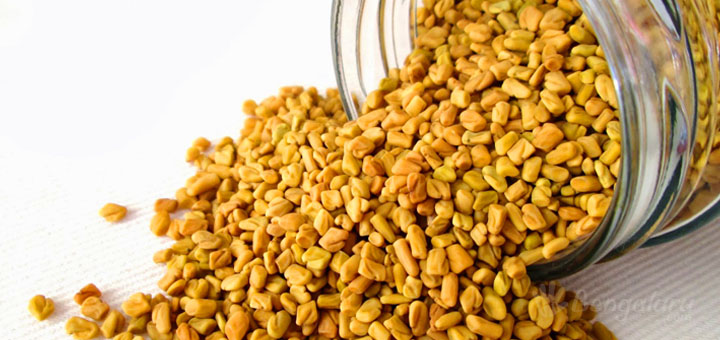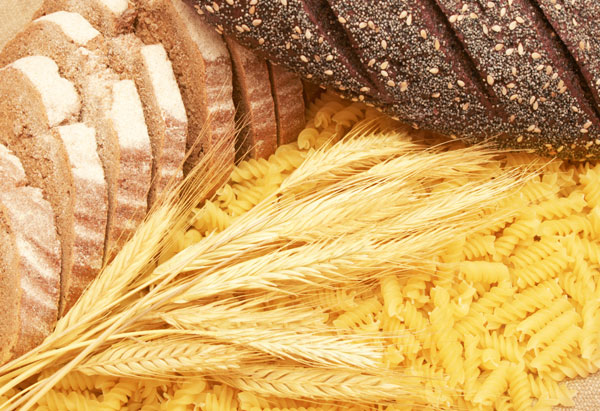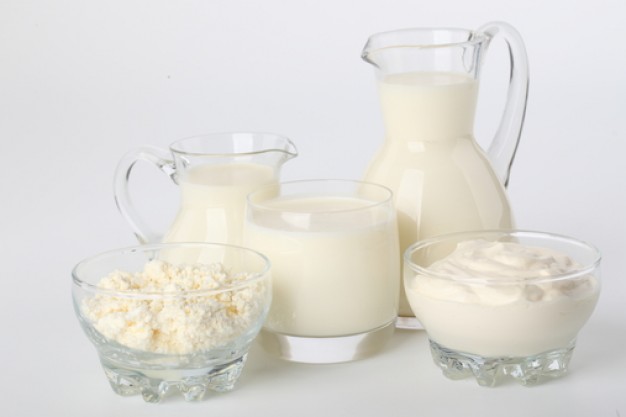
We are all aware Fenugreek right? Wondering what is Fenugreek? It’s nothing but, Methi in Hindi Fenugreek (Trigonella foenum graecum) is native to southern Europe and Asia and is an erect annual herb with white flowers and hard, yellowish brown and angular seeds.
Fenugreek seeds and leaves are strongly aromatic and flavourful. Seeds are bitter in taste but lose their bitterness if roasted slightly. They are rich in vitamins such as thiamine, folic acid, riboflavin, niacin, vitamins A, B6, and C, and are a storehouse of minerals such as copper, potassium, calcium, iron, selenium, zinc, manganese, and magnesium. Fenugreek leaves are a rich source of vitamin K as well.
Several human intervention trials have also shown that fenugreek seeds positively affect metabolic health. Fenugreek seeds have a slightly bitter taste when raw, but when they are sprouted, the flavour becomes pungently sweet, adding a unique taste to salads and other foods.
Methi or fenugreek seeds and leaves form an important ingredient in Indian households. It is used in almost every Indian preparation like dal, paratha or curry. But, what we might not know is that methi is a rich reservoir of medicinal properties that imparts many health benefits. Here are some ways which reflects the benefits of fenugreek.
- Lowers blood cholesterol
Fenugreek helps to reduce cholesterol level, especially that of low density lipoprotein (LDL). They are known to be rich source of steroidal saponins that prevent the absorption of cholesterol and triglycerides.
- Reduces risk of heart disease
Due to the presence of galactomannan, fenugreek plays a key role in maintaining a good heart. It also contains high amount of potassium that counters the action of sodium to help control heart rate and blood pressure.
- Controls blood sugar levels
A Diabetic must include methi (either in the form of seeds or leaves) in their diet. Because galactomannan, a natural soluble fibre present in fenugreek slows down the rate of sugar absorption into blood. It also contains amino acid responsible for inducing the production of insulin.
- Aids digestion
As fenugreek is rich in fibre and antioxidants, it helps in flushing out harmful toxins from the body and thus, aids digestion. In some cases, fenugreek tea is used to relieve indigestion and stomach pain.
- Helps counter acid reflux or heartburn
One teaspoon of fenugreek seeds in our food can be an effective remedy for acid reflux or heartburn. Mucilage of fenugreek seeds coat the lining of the stomach and intestine and soothe irritated gastrointestinal tissues. Before consuming, we can soak the methi seeds in water to make their outer coat mucilaginous.
- Helps you lose weight
Include fenugreek in our weight loss diet by chewing soaked methi seeds in the morning on an empty stomach. The natural soluble fibre in the fenugreek can swell and fill the stomach thereby suppressing our appetite and aiding in weight loss goals.
- Remedy for fever and sore throat
Fenugreek when taken with a teaspoon of lemon and honey can work wonders to reduce fever by nourishing the body. The soothing effect of mucilage in fenugreek also helps in relieving cough and pain from sore throat.
- Increases breast milk production in lactating women
Fenugreek ranks high among the ‘must haves’ for nursing mothers. This is due to the presence of diosgenin in the spice which increases milk production in lactating mothers. Fenugreek is used as a galactagogue by nursing mothers to increase inadequate breast milk supply.
9. Induces and eases child birth
Fenugreek has been known to be helpful in inducing childbirth by stimulating uterine contractions. It also reduces labour pain. But, here’s a word of caution. Excess intake of fenugreek seeds during pregnancy could be a reason of miscarriage or premature childbirth.
- Helps reduce menstrual discomfort
Fenugreek contains compounds like diosgenin and isoflavones with oestrogen-like properties which helps reduce symptoms like discomfort and menstrual cramps associated with PMS. These compounds also ease menopausal symptoms like hot flashes and mood fluctuations. Women are more prone to iron deficiency during adolescence (initiation of menstrual periods), during pregnancy and breastfeeding. Therefore including green leafy veggies like fenugreek (methi) in their diet can supply a good amount of iron. But, make sure to add tomatoes or potatoes to the preparations to enhance the iron absorption.
- Helps prevent colon cancer
The fibre content (saponins, mucilage, etc.) of fenugreek binds to toxins in the food and flush them out. This in turn helps to protect the mucus membrane of the colon from cancer.
- Helps soothe skin inflammation and reduce scars
While Vitamin C acts as a powerful antioxidant, fenugreek also contains anti-inflammatory compounds that aid in the treatment of various skin problems like burns, boils and eczema. The seeds are known to help in getting rid of scars.
14 Helps treat skin problems
Fenugreek or methi can be used in face packs to help prevent blackheads, pimples, wrinkles, etc. Washing your face with water boiled with fenugreek seeds or applying a paste of fresh fenugreek leaves for twenty minutes on your face can work wonders for your skin.
15 Can resolve hair problems
Using fenugreek as a part of your diet or as a paste to directly apply on your hair makes your hair shiny and black. Massaging your head everyday with boiled fenugreek seeds soaked overnight in coconut oil can be an excellent remedy for thinning of hair and hair fall.
To de-stress, here is a homemade remedy:
Fenugreek Seed Tea
1. Lightly crush a teaspoon of fenugreek seeds.
2. Soak them in a cup of freshly boiled water and steep it for 1 to 3 hours. (The longer you steep, higher the benefits).
3. Strain the tea, add honey and lemon to taste and drink it hot or cold. You can add tea leaves or other herbs too for different flavour.





